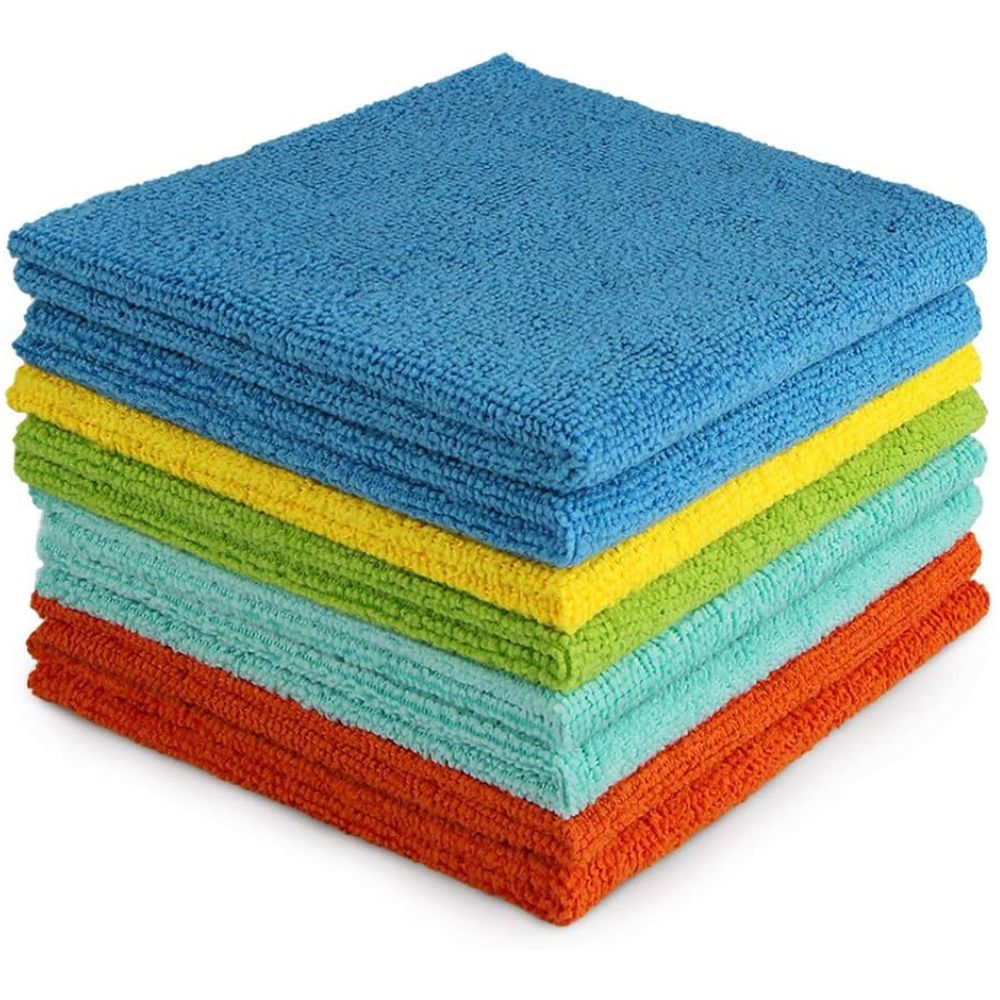6 things experts recommend cleaning with lemons, to benefit from the natural anti-bacterial element
If you're looking to keep your cleaning routines chemical-free and low-cost, then lemons are your next best friend

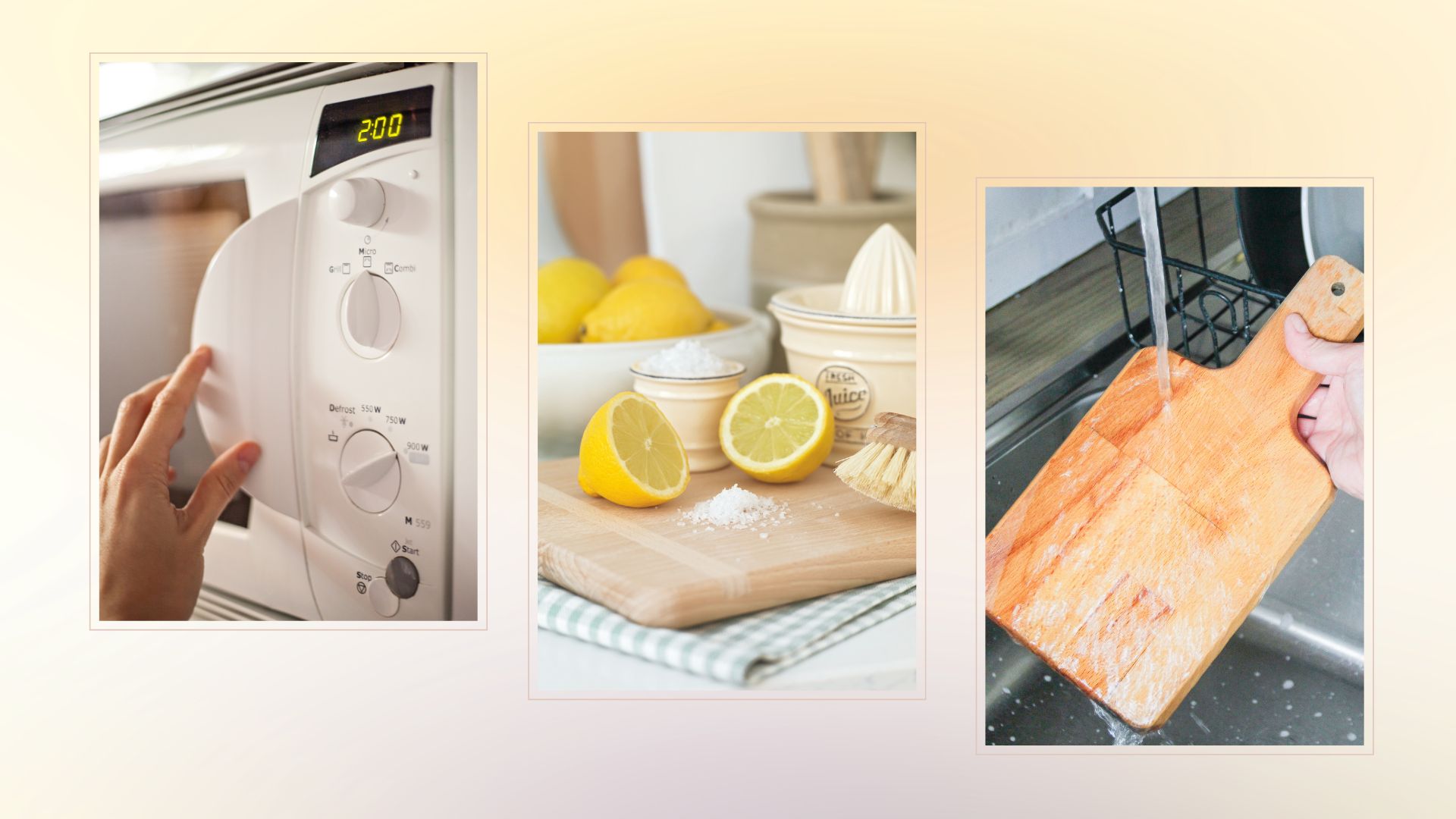
It turns out lemons are a lot more versatile than just adding a refreshing sourness to your favourite drink. They can also help keep your home clean and fresh-smelling, too.
Whether you have a deep clean routine or prefer daily habits that keep your home clean, you'll probably have an impressive collection of cleaning products. And while we love a good multi-purpose spray, sometimes you can't beat cleaning with lemons.
That's right, lemons are another one of Mother Nature's very best cleaning agents, and they're all natural, affordable and completely compostable. We've asked our team of cleaning experts to share the best spots in the home for utilising the power of lemons.
Cleaning with lemons: 6 expert-approved methods
From making your home smell good to levelling up your Sunday reset routine, cleaning with lemons has several benefits.
They're cheap, completely chemical-free, naturally anti-bacterial and effective at cutting through grease. That's why many areas in your home benefit from cleaning with lemons. Here are a few for you to try...
1. Kettle
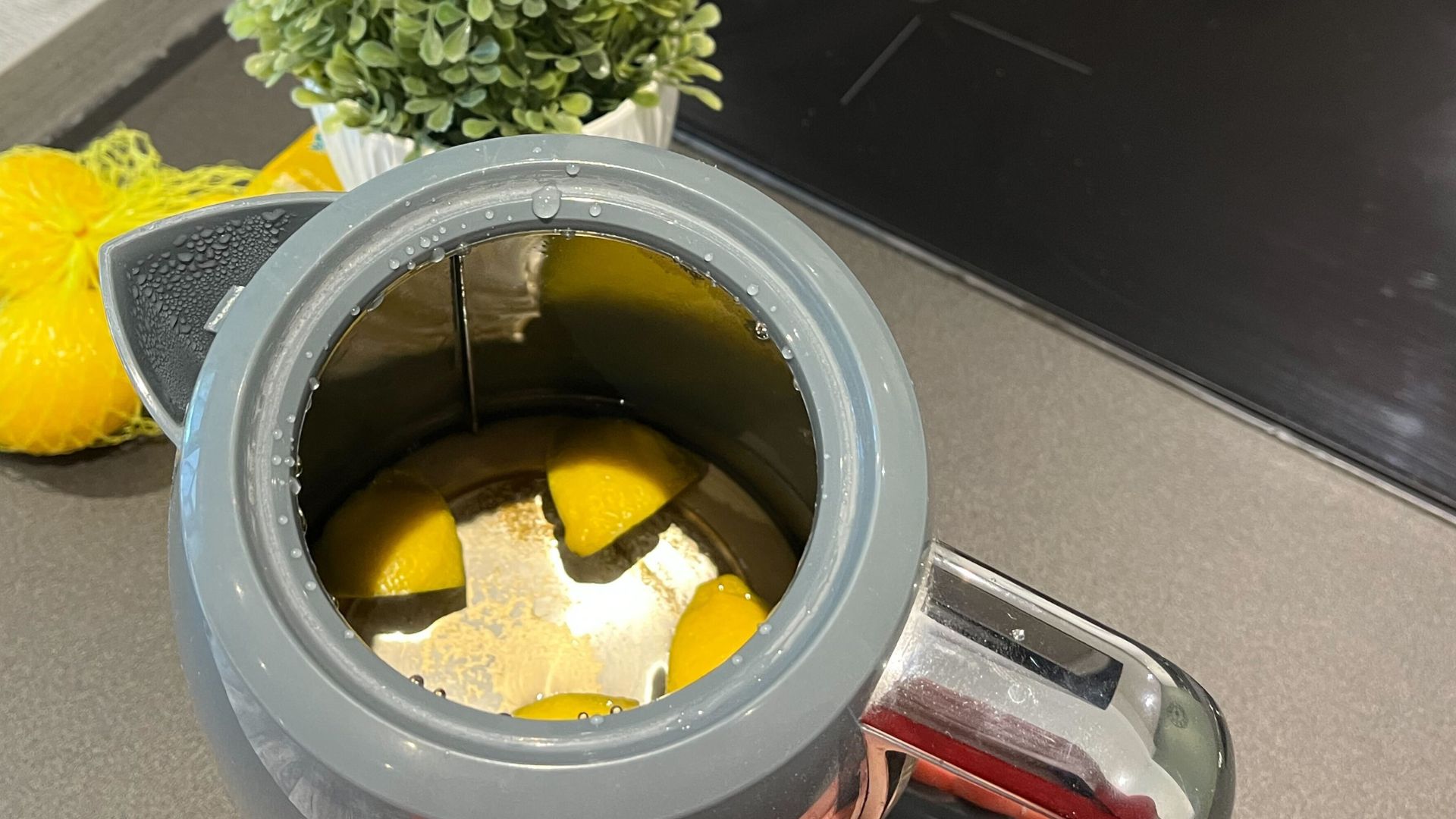
Unless you buy a new kettle with every new year of kitchen appliance trends, the chances are your kettle has built up a little bit of limescale. But not to worry, lemons can help with that.
"A lemon is the perfect way to get rid of the limescale in your kettle that’s making your tea taste a bit off," explains Catherine Green, sustainable cleaning expert at Smol.
Sign up to our free daily email for the latest royal and entertainment news, interesting opinion, expert advice on styling and beauty trends, and no-nonsense guides to the health and wellness questions you want answered.
To do this, Catherine suggests cutting a lemon into quarters and placing the pieces in your kettle, then filling it with enough water so that a couple of inches cover the bottom.
"After that, switch it on and let it boil. Once it’s boiled, switch it off and let the lemon water sit for about half an hour. Finally, pour it away and give the kettle a good rinse, then boil some fresh water and discard that too just to get rid of any lemony taste," adds Catherine.

Having worked for the cleaning brand Smol since its creation, Catherine has tested each and every product before its release. She is also involved with the production team's process and provides feedback for the development of the company's products.
2. Chopping boards
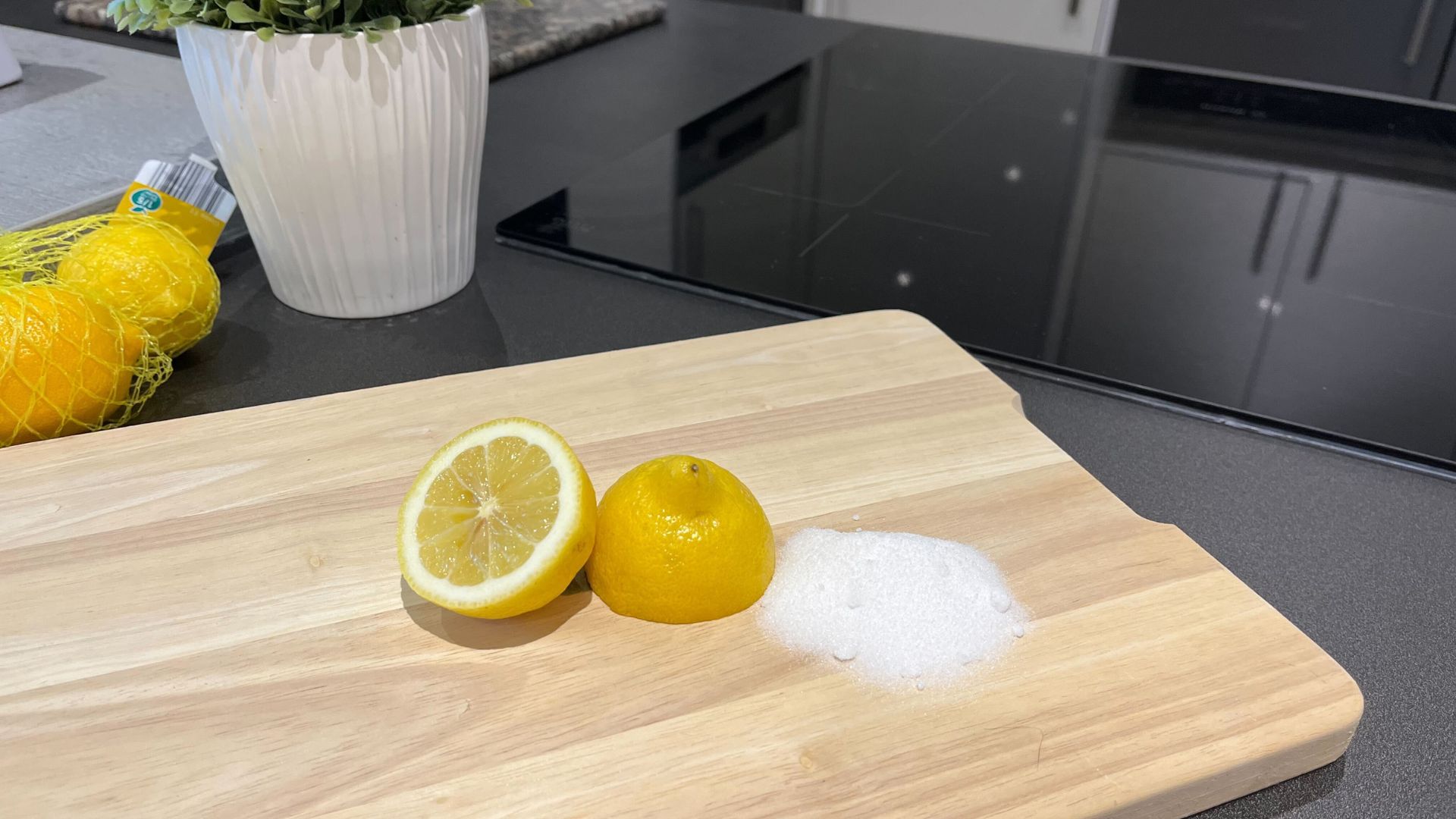
Knowing how to clean a wooden chopping board is incredibly important, not only to keep the board in good condition but also to kill bacteria that cling to it.
"Chopping boards take quite a beating, but a quick lemon scrub not only gets rid of stubborn smells but also helps lift small stains," starts Catherine.
"Start with sprinkling a handful of coarse salt over your board and then use half a cut lemon like a cleaning brush, squeezing as you scrub so the juice mixes with the salt," she adds.
You'll want to make sure you're working it into the grooves and stain, then leave it for five minutes or so. After that, simply rinse it with warm water and stand it up to dry.
3. Microwaves
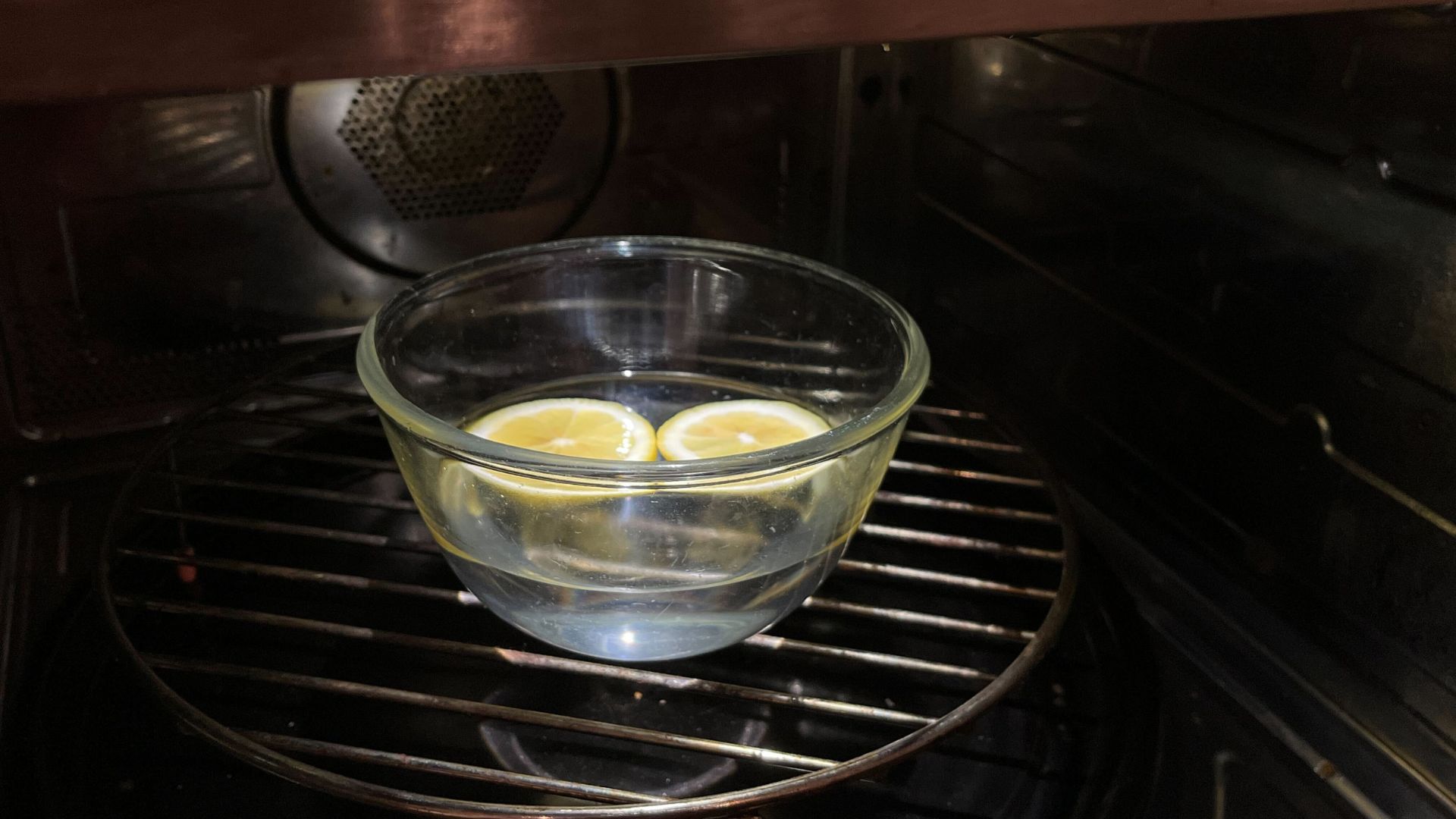
You might already know how to clean a microwave with lemons; it's a common expert cleaning hack, and there's a reason for it. If you're yet to hear about it, here's how to master the method.
"Slice a lemon in half and add its juice to a microwavable bowl with one cup of water and place the two halves into the bowl for good measure," instructs Catherine.
"Then, put the bowl into the microwave and set the time for 3 minutes (or until the water boils). Remove the bowl and wipe down the inside of the microwave with a clean cloth," she continues.
The steam combined with the oil from the lemon rind helps to loosen grease, dirt and grime on the inside of the microwave and helps to get rid of any food smells.
4. Mirrors and glass
Whether you're wondering how best to clean a mirror or you're tired of streaky windows, a lemon can be a simple yet effective cleaning agent.
"Start by mixing four tablespoons of lemon juice with one cup of water in a spray bottle. Shake it together and spray the area which you would like to clean," Catherine says.
"Then, wipe your mirror or glass down with a clean cloth to get rid of any stains and markings. You should get a streak-free shine," she adds.
Catherine does, however, warn that if you’re using microfibre cloths, wash them in a Guppyfriend bag so you’re not shedding millions of plastic microfibres into our waterways.
5. Air fryers
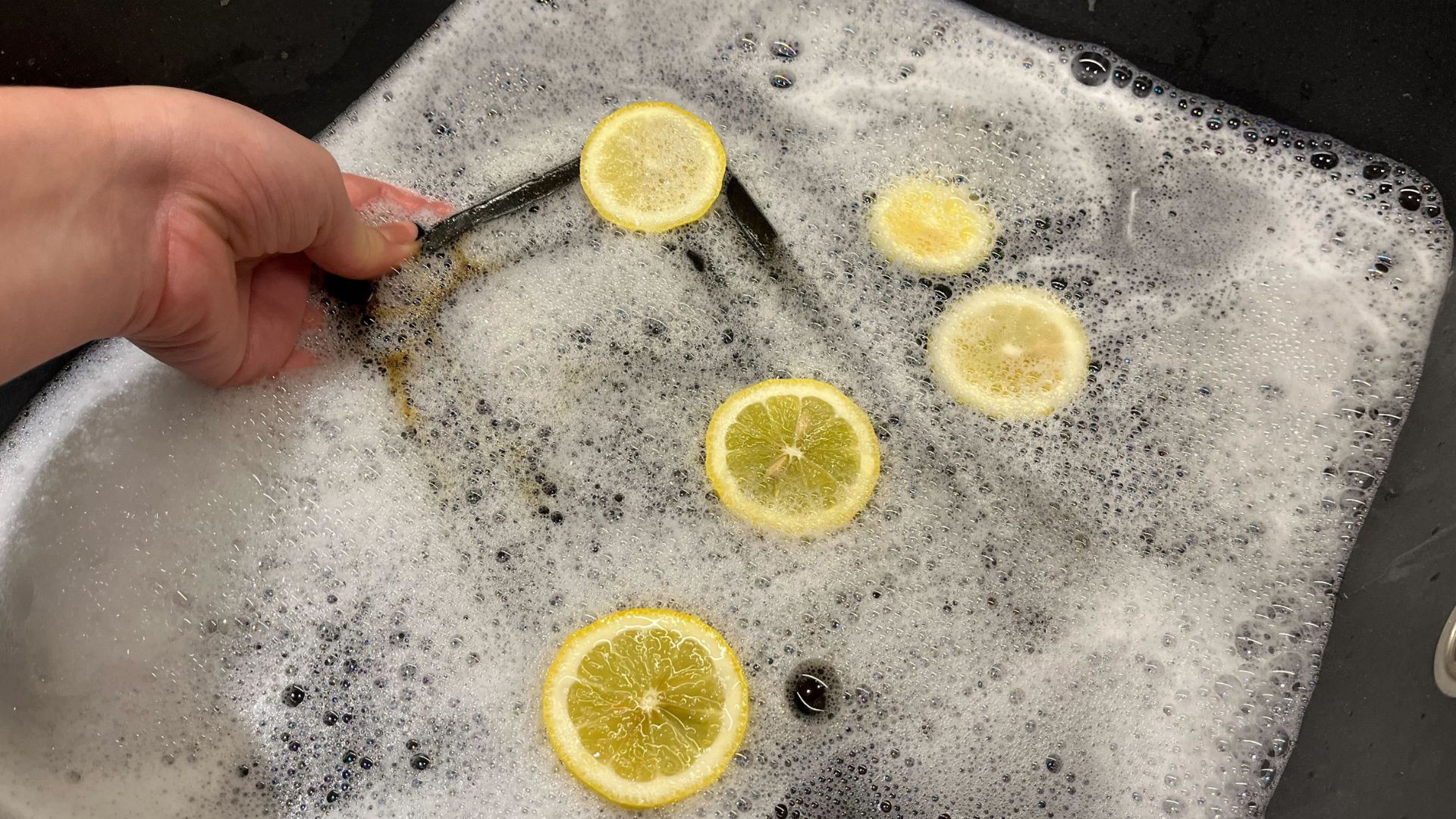
There's nothing more frustrating than realising you forgot to clean your air fryer when you go to make dinner. Despite their low-effort cooking methods, they can be a real pain to clean thoroughly.
"A little-known trick is to use a lemon to clean your air fryer. Remove the tray and pop this into soapy water, and add a couple of halved lemons. The lemon will aid you in removing any stubborn bits of grease and help your appliance retain a pleasant smell," reveals Isabella Forgione, small appliances expert at AO.com
"Wash as normal before leaving this to dry and be mindful to avoid using any rough cleaners like steel wool or the rough side of a sponge," she finishes.
6. Fridges and freezers
Cleaning a fridge seems pretty self-explanatory; however, sometimes odours and spills can be stubborn and hard to remove. Lemons are a fantastic solution for this.
"Lemon can be used in your fridge/ freezer to help clean and deodorise any smelly foods. Remove all food, shelves, and drawers, then wash them in warm soapy water," explains Isabella.
"Use a tablespoon of lemon juice and mix this with 500ml of water to wipe down the interior walls, shelves and door seals before drying them thoroughly. It’ll leave your fridge fresher than ever, a handy trick as we head into autumn," she continues.
FAQs
What should you not clean with lemon juice?
Similar to things you shouldn't clean with vinegar or things you shouldn't clean with baking soda, lemons also have limitations on where you can use them in your home cleaning.
"As handy as lemons are, there are definitely places they don’t belong. Using lemon juice on anything made from natural stone like marble, limestone, or travertine is a bad idea because the acid can leave dull, permanent marks," says Catherine.
"The same goes for unsealed grout, lacquered metals (like brass) and cast-iron pans, which will lose their seasoning and start to rust," she adds.
You'll also want to avoid any delicate fabrics, jewellery and of course electronics. Catherine does point out that you should never mix lemon with bleach, as this combination will produce dangerous fumes.
Can lemon juice clean a toilet?
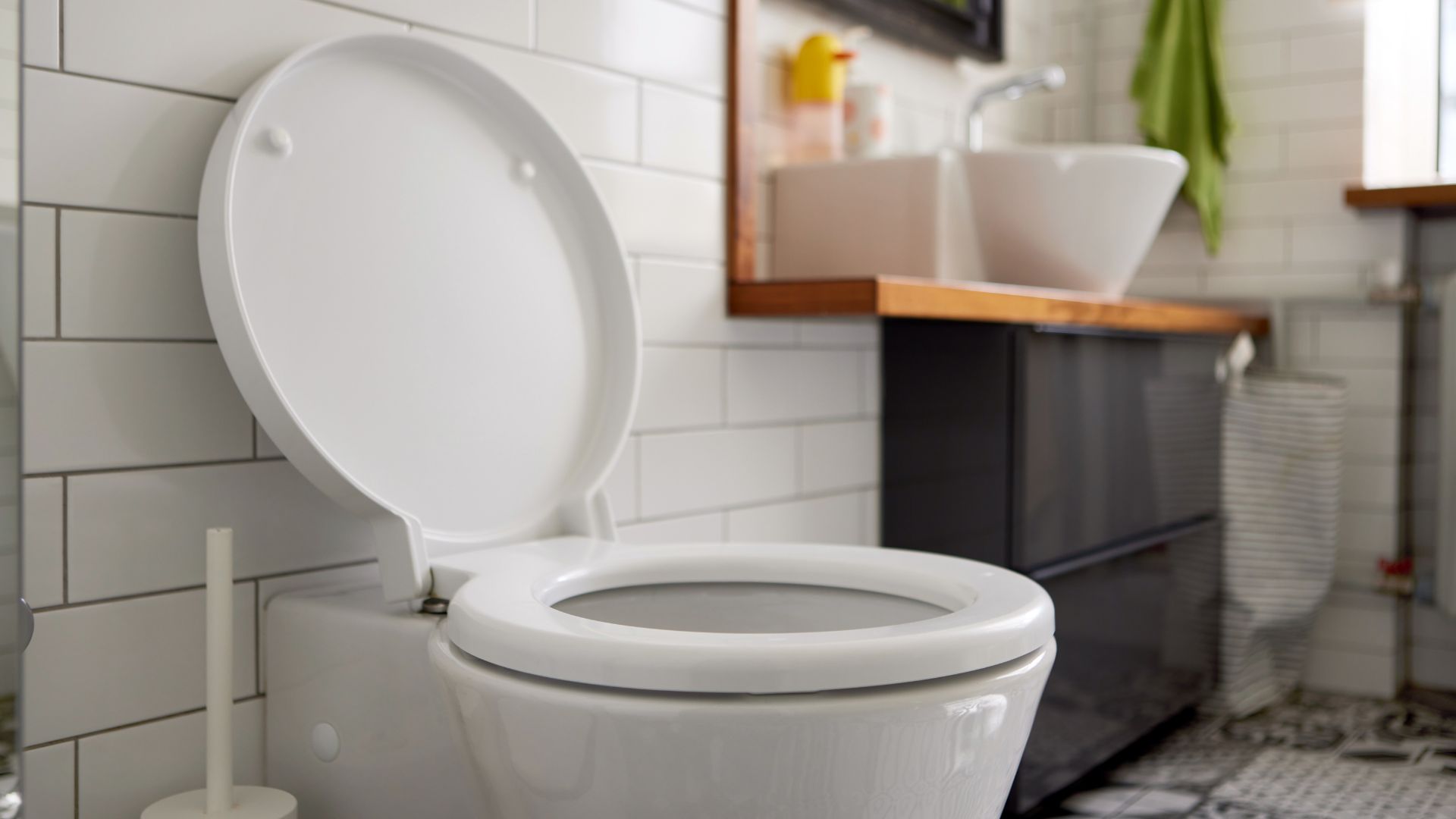
While keeping your toilet clean is a necessity and an easy way to keep your bathroom smelling good, it's the least fun task. Which is why finding a quick, efficient method for cleaning is always a good idea.
"The short answer is yes, for light stains, freshening and mild limescale, it’s great," says Catherine. "However, for heavy staining or deep disinfecting, you’ll want a purpose-made toilet cleaner or bleach."
To use lemons for toilet cleaning, you'll want to pour a cup of the juice around the bowl, concentrating on stains and under the rim. Then let it sit for up to an hour, scrubbing with a toilet brush before you flush. You can repeat this if needed.
Can I mop with lemon juice?
If you're guilty of bad mopping habits, then you may be looking for a little helping hand to keep your floors looking their best.
"Lemons can be one of the simplest ways to freshen up your floors without a purpose-made cleaner. The lemon cuts through light grease, leaves things smelling clean, and makes tiles, vinyl and lino look brighter," explains Catherine. "The trick is keeping it nicely diluted so you don’t end up with sticky floors or damage to sensitive surfaces."
If you want to keep things natural in other parts of your home, then you can actually use baking soda and white vinegar in your garden too.

Emily joined woman&home as a staff writer after finishing her MA in Magazine Journalism from City University in 2023. After writing various health and news content, she now specialises in lifestyle, covering unique cleaning hacks, gardening how-tos, and everything to help your houseplants thrive.
You must confirm your public display name before commenting
Please logout and then login again, you will then be prompted to enter your display name.
